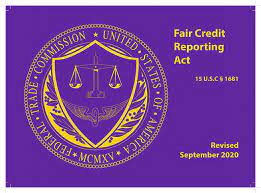ADP criminal record mistake results in a lawsuit

ADP’s background-check screening arm, incorrectly reported a Connecticut candidate was a convicted drug dealer, when in fact this individual did not have a record. ADP used its own proprietary software, “ADP Crim Radar,” and a third-party vendor, to conduct a search at a local courthouse.
The ADP Crim Radar did not develop a criminal record, however a positive hit that included felony convictions for possession of CDS with the intent to sell/dispense was submitted by the vendor that falsely reported the date of birth matched the candidate when in fact it did not. ADP did not conduct further investigations to ensure the plaintiff and the individual named in the courthouse records were the same.
The alleged FCRA violation
Based on this information, the employer revoked the candidate’s job offer. The employer followed FCRA guidelines and offered the opportunity for the candidate to dispute the information and request a reinvestigation by ADP. The reinvestigation was delayed due to internal policy by ADP that only allows this process after sending the report to the employer, according to the complaint.
The complaint alleges that ADP violated the FCRA by failing to “follow reasonable procedures to assure maximum possible accuracy”.
This article highlights an all too common occurrence in the background industry. Much like an iceberg, the individuals who actually expose the errors on the part of vendors are few in number with a huge number of candidates are submerged underwater and unseen who have been denied employment opportunities, predominantly minorities.
Driven by the demand to lower costs to compete with other vendors, and the demand from HR to shorten the onboarding process, vendors have moved to what they euphemistically promote as Artificial Intelligence criminal research, or as in the case mentioned in the article the vendor’s “own proprietary software”. In a nutshell, vendors use bots to scrape data off of the Internet including actual criminal records from courts in some juridsdictions, correctional records, newspaper and Internet articles on arrests, etc. The aggregated data is compiled into a huge searchable database that often has limited personal identification information which leads to the false reporting of a criminal record. In this case, “a third-party vendor which checked the criminal records at a local courthouse”, and inaccurately reported the record. Apparently, ADP felt the need to double-check their proprietary software with a County criminal record search.
Again to cut costs, background vendors have moved towards automation to review record information to determine if it is accurate rather than having an experienced individual review contradictory information, and ensure that a minimum of two identifiers must match the candidate prior to reporting a record to the client.
A vendor’s “own proprietary software” is fast and cheap but is not as thorough as a primary source such as a state agency specifically authorized to allow criminal record research for employment purposes such as the State Police in 43 states where the search is available, or at the County level in the 7 states where a statewide search is not available. What is interesting about this case is that Connecticut has a publicly accessible statewide criminal record research through an Internet-based state agency and yet ADP chose to use their “own proprietary software”.
Primary source criminal record checks through state agency, or County court are much more time-consuming an automated process entering an individual’s name and identifiers into a database that instantly returns results. However, if there is an issue with reporting a criminal record that does not belong to your candidate, how would you prefer to defend the search results to your candidate, or a lawsuit? A nefarious database of unknown records reported the results, or the State of Connecticut Judicial Branch database.
The most important issue highlighted in this article is that the employer took the steps required by the Fair Credit Reporting Act to initiate notification to the candidate, and offer the opportunity to dispute the results. Employers must have a system in place to document compliance and should conduct a bi-annual audit of their FCRA processes to ensure the candidate’s rights are upheld, an opportunity is not lost and to avoid costly lawsuits.
